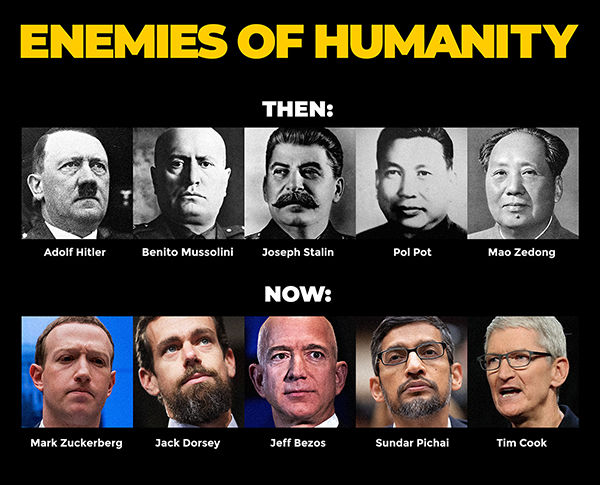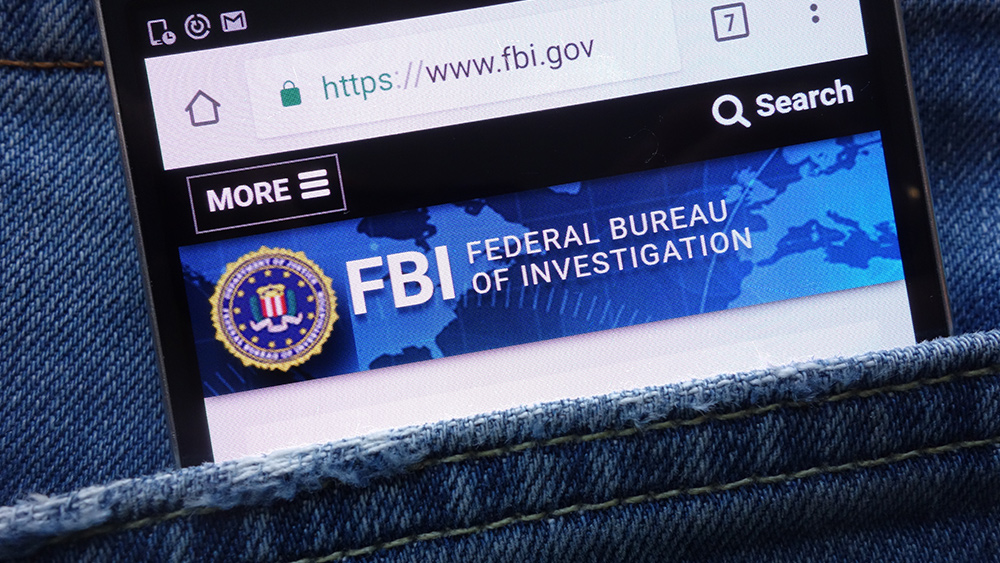Amazon, Facebook and Google have legalized the “abuse of the person through the personal,” claims Edward Snowden
11/14/2020 / By Cassie B.

NSA whistleblower Edward Snowden recently criticized Facebook, Amazon and Google for abusing people’s personal data and insisted that people need to understand the threat to privacy that these social media platforms pose.
He made the comments when he appeared via video link at Web Summit in Lisbon on Monday. He said that Big Tech companies make people vulnerable by collecting their personal data, which they then share with governments in what he called a “deal with the devil” and “Faustian bargain.”
He said: “These people are engaged in abuse, particularly when you look at Google and Amazon, Facebook and their business model. “And yet every bit of it, they argue, is legal. Whether we’re talking about Facebook or the NSA, we have legalized the abuse of the person through the personal.”
Although Snowden believes that people are becoming more aware of privacy issues and growing angrier about such violations, he thinks that a greater understanding of the specific abuse that is being carried out against them is needed.
Snowden is a longtime critic of social media
Snowden, a former National Security Agency (NSA) contractor, is best known for exposing the NSA Prism surveillance program in 2013. He leaked documents to journalists detailing the extent to which the American government was collecting people’s personal data. After fleeing to Hong Kong, he was given asylum in Russia, where he still lives.
His actions set off a national debate about surveillance by intelligence agencies. He claims he is not a whistleblower but did feel the world had a right to know what was going on. Instead of going after people who committed crimes, the NSA was prospectively surveilling people before they ever broke the law.
The documents he gave to journalists included slides that listed Google, Facebook, AOL, Yahoo, Microsoft and Apple as willing partners in the surveillance.
He said that tools that were intended to protect the public were instead being used to attack them. “If you create an irresistible power, whether it is held by Facebook or any government, the question is, how will you police the expression of that power when it is used against the public rather than for it?”
In an interview last year, Snowden said that viewing the NSA as a bigger threat to people’s privacy than Big Tech was a “mistake.”
Speaking to Recode, he explained: “Facebook’s internal purpose, whether they state it publicly or not, is to compile perfect records of private lives to the maximum extent of their capability, and then exploit that for their own corporate enrichment. And damn the consequences.”
He added that this is also what the NSA does and that Google has a similar model, saying that there is no good reason for Google to be able to read people’s emails or for Facebook to see private conversations between people. Snowden said that he thinks people do care about this but feel they don’t have the power to change it.
An investigation by the New York Times revealed that Facebook gave more than 150 of the world’s biggest companies access to the personal information of its users. After interviewing more than 60 employees of the social media giant and its partners and reviewing internal documents, they found that Facebook gave more than 400 million users’ personal information to companies like Microsoft and Google, violating their privacy to further their own agenda. They even went so far as to allow companies like Netflix to read people’s messages.
Facebook has also been caught turning on people’s smartphone cameras without permission and copying data from mobile phone clipboards.
Snowden is right: Big Tech companies need to stop invading people’s privacy. People are more aware of what is at stake now than they were just a few years ago, but Facebook, Google, YouTube, Amazon, Twitter and all the other big names in tech continue to spy on people and censor them unchecked.

Sources for this article include:
Submit a correction >>
Tagged Under:
bad tech, Big Tech, Edward Snowden, evil, Facebook, Google, NSA, Orwellian, privacy, privacy watch, surveillance, tech giants, Twisted
This article may contain statements that reflect the opinion of the author
RECENT NEWS & ARTICLES
COPYRIGHT © 2017 SURVEILLANCE NEWS




















